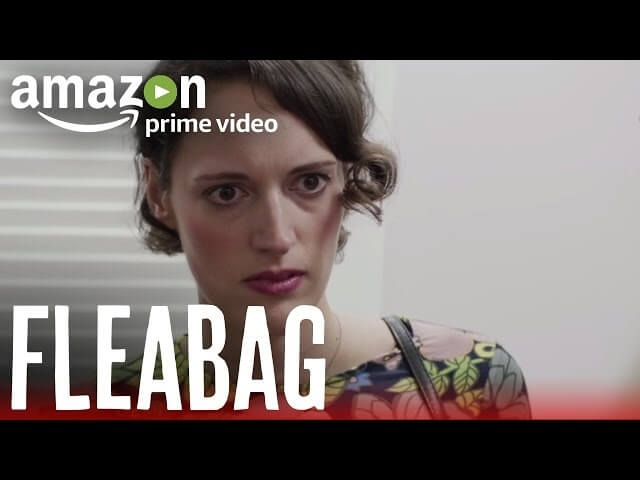Fleabag’s Phoebe Waller-Bridge on why her protagonist’s so prickly

This interview discusses a major, surprising plot point from the first episode of Fleabag. Read our review of the complete first season, sans spoilers, here.
The first episode of the thrillingly upsetting and witty British series Fleabag—which comes to Amazon today—ends with a revelation. Fleabag, the cheeky heroine played by series creator Phoebe Waller-Bridge, explains to a cab driver that her best friend, Boo, who we had seen, sweet and happy in flashbacks, killed herself by stepping into a bicycle lane. Boo’s death was a gruesome accident—she only meant to hurt herself as a way to punish her boyfriend—but it completely changes our read on the fourth-wall-breaking protagonist. Fleabag is not simply a woman out looking to have a good time. Her caustic pleasure-seeking is instead a way to combat her deep sadness.
In real life, Waller-Bridge was giddy and not at all tortured when The A.V. Club met with her one morning in New York. As we chatted, she explained how her mind went to such depressing places.
The A.V. Club: This started out as a play at the Edinburgh Festival Fringe, right? Why did you write it first as a one-woman show?
Phoebe Waller-Bridge: I didn’t really know what I was doing at all. A friend had asked me to do a stand-up storytelling night, a 10-minute slot of something. It was something I had never done before. I had written short plays and occasionally performed them myself, but the idea of a stand-up-ish thing—even though it wasn’t strictly stand-up—I was like, “No way.” And then I thought, actually, ”I’m only saying that because I’m terrified, and I’ve got to do it.” I just decided to write the naughtiest, driest, silliest, fun-with-a-dark-twist 10 minutes that I could think of. [It was] particularly for a friend of mine who I knew was going to be there. I thought I’d direct it at her, because I was so mortified to be doing stand-up at all. Because I was so purist about making her laugh—she ended up directing the show—I was like, “I don’t know any of these people. I just know her. I’m going go say filth at her for 10 minutes.” Then as we were leaving, loads of people were like, “Oh, you should turn this into a full show and take it to Edinburgh.” I never thought about doing anything like that before. My producer got a slot in Edinburgh. So I was basically, suddenly, having had no plans to do this at all, like, “Right, okay, you’ve got to write a one-hour play based on this little 10 minutes that you did.” I took that idea of this sexually open and explicit young woman who’s actually really damaged, and I was like, “How can I stretch that?”
AVC: Had you been teasing around the character at all before you were asked to do these 10 minutes? Or did she just come to you?
PWB: She just came to me. I remember I was so stressed that I had been asked to do it and I’d said yes. I sat at home with this enormous pizza, just crying into the pizza box, and the bit opened with, “I’m at home eating this slutty pizza,” which was the first line of the play. I’ve written lots of really complicated, potentially unlikable female characters in my short plays, but nothing as hard or as dry as her.
AVC: When did the story about Boo start factoring into your idea of the character?








































